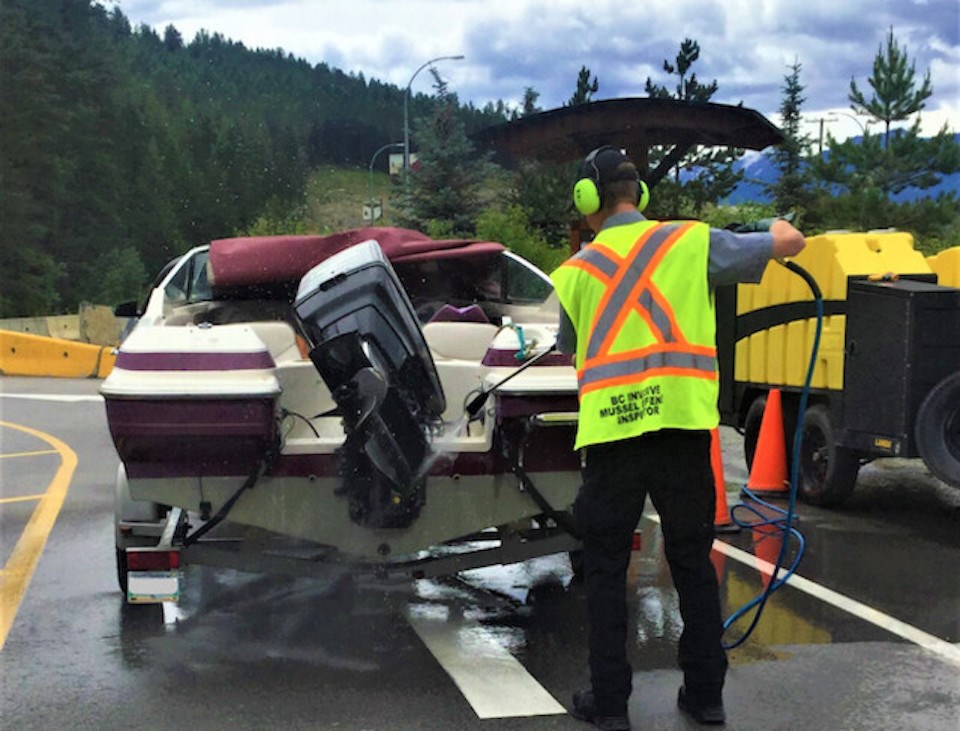A study of provincial Invasive Mussel Defence Program data shows there is a less than a 30 per cent chance that a single infested motorized watercraft entered B.C. during 2021 without being inspected.
A report prepared for the Okanagan Basin Water Board shows that risk drops to just 3 per cent for non-motorized craft.
However, that data only includes craft that were recorded by an inspection station and which came into the province during the inspection season.
Since 2015, the program has conducted more than 220,000 inspections and intercepted an average of 19 infested watercraft each year.
The likely number of infested, un-inspected watercraft is less than one every three years, the report notes.
However, more than 950 water samples were taken in 2020, with no positive cases of invasive mussels.
Out of approximately 33,000 inspections last year, 17 of 244 high-risk watercraft were found to be infested.
The province received advance notification about seven of the infested watercraft from other jurisdictions’ inspection programs, or the CBSA.
"This important program must be adequately resourced going forward, to provide protection to the environment, economy and way of life in the Okanagan," the water board stresses.
The board is seeking long-term funding of at least $3.5 million for the mussel program, along with additional support from the federal government.
Meanwhile, the province is finalizing an updated cost analysis on just how much a mussel invasion would cost.
"The original cost analysis from 2013 estimated that an invasion would cost at least $43 million annually, but did not account for several costs. The updated version, which will be peer-reviewed, will account for economic impacts to a variety of sectors including hydropower, recreation and tourism, irrigation and property values," the board says.


